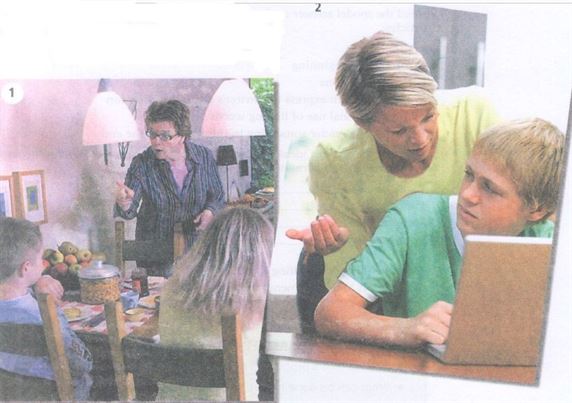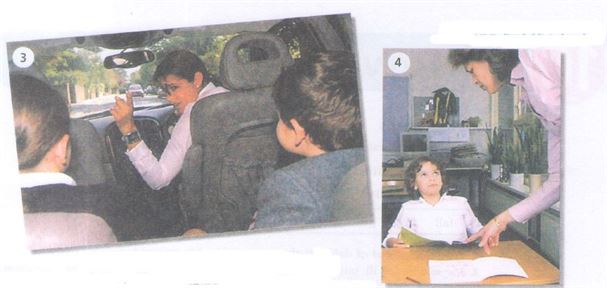FCE Grammar about passive in reporting verbs
چگونه به زبان انگلیسی درباره ی دعوا کردن صحبت کنیم

Speaking
Part 2
Talking about photos
Why are the children being told off?

1 Look at the photographs, which show children being told off.
Student A Compare photographs 1 and 2 and say why you think the children are being told off.
Student B When your partner has finished, say how you think the adults are feeling.
2 Now change roles. Follow the instructions above using photographs 3 and 4 on page 137.

Listening 2
Part 1
Multiple matching 2.17-2.21
1 Read the text on page 204 and answer the following question.
What reasons are given for children telling lies?
2 Tell your partner about a time when you or someone you know told a lie:
- as a child • recently
What was the reason for telling the lie? What were the consequences?
3 You will hear five different people talking about a time when they told a lie. For questions 1-5, choose from
the list (A-H) what each speaker says. There are three extra letters which you do not need to use.
A I insisted on my innocence.
B I did not want to hurt someone's feelings.
C I disliked the way I had been treated in the past.
D I made some money by telling a lie. E I lied because I was in a hurry.
F I did not lie intentionally.
G I gave two different versions of my story.
H I should have destroyed the evidence.
Spesker 1
Spesker2
Spesker3
Spesker4
Spesker5
4 Have you ever told any similar lies to those of the five speakers?
Vocabulary 3: Phrasal verbs
1 Look at the listening script on page 233 and use the context to help you guess the meanings of the phrasal verbs in bold.
Example:
... I owned up to my dad about lying - I felt so guilty, I had to tell him.
Own up means to admit or confess that you have done something wrong.
2 Record the phrasal verbs in your notebook. Include the definition and the sentence from the listening script in which the verb appears, as in the example in exercise 1.
3 Write three sentences, each including one of the phrasal verbs from the listening script. Leave gaps where the phrasal verbs should be. Include enough information in your sentences to illustrate the meanings of the phrasal verbs.
Example:
No one admitted to breaking the window, so the teacher said that if the person responsible did not ___ , the whole class would be punished.
4 Show your sentences from exercise 3 to another student, who will complete the gaps.
Language focus 3: Passive of reporting verbs
1 Infinitive forms (to do, to be doing, to have done) can be used after the passive of a number of reporting verbs to talk about beliefs and opinions which are shared by many people.
Example:
Young children are known to lie to avoid punishment.
This has the same meaning as:
It is known that young children lie to avoid punishment.
Change the following sentence in the same way.
He is believed to have made up the story about being mugged.
It .
Examples of reporting verbs are: believe, consider, expect, know, say and think.
Read more about the passive of reporting verbs in Con page 217 of the Grammar reference.
2 For questions 1-5, complete the second sentence so that it has a similar meaning to the first sentence. Be sure to use the correct form of the verbs in bold.
1 It is believed that continual nose touching indicates that someone is lying.
Continual nose touching is that someone is lying.
2 It is said that people who repeatedly cover their mouth are trying to hide the truth.
People who repeatedly cover their mouth to hide the truth.
3 It is considered that avoiding eye contact is a sure sign of deception.
Avoiding eye contact a sure sign of deception.
4 People think that we use fewer hand gestures when telling a lie.
We fewer hand gestures when telling a lie.
5 Everyone knows he lied because he kept moving about in his chair.
He because he kept moving about in his chair.
3 The statements in exercise 2 are believed by some people to be myths, widely held beliefs which are simply not true. What do you think?


